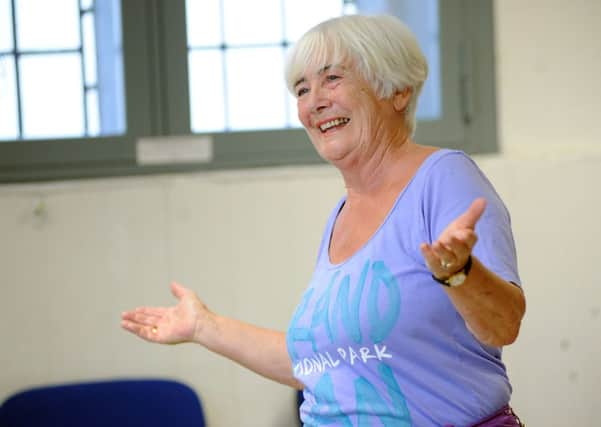How social prescribing is helping to tackle loneliness in one Yorkshire city


Leeds Council linked with Age UK to run the social prescribing pilot, which sees 28 GP practices refer patients with non-clinical needs to Age UK, who link them up with things like arts activities, social groups and its 37 Neighbourhood Networks.
Research into social prescribing shows that it can improve mental health and reduce social exclusion and the health problems associated with it, like depression.
Advertisement
Hide AdAdvertisement
Hide AdThe risk of depression increases with age, with 40 per cent of people over 85 are affected.
Councillor Adam Ogilvie, Leeds Council’s executive member for adult social care, said: “A lot of GPs are still unaware of all the activities going on in the city. The project has opened their eyes to the alternatives to prescribing drugs. Linking into the Neighbourhood Networks is really powerful.”
Heather O’Donnell, chief executive at Leeds’ Age UK said: “For a lot of the people referred to us, the problem is a lack of social network, feeling cut off and lonely, so we identify the priorities for them. In some instances, there will be Age UK services that can help, but for others, it could be a lunch club or getting in touch with organisations like Carers Leeds or the Alzheimer’s society.
“We’ll go with them for the first time so they don’t have to go on their own.”
Advertisement
Hide AdAdvertisement
Hide AdThe pilot runs until March next year, and has already shown benefits.
Ms O’Donnell said: “In some people, we’ve seen that relatively small interventions of a short period of time can have a huge affect. GPs talk about how people’s lives have been transformed.”
Leeds is one of nine Yorkshire councils that has come under fire for failing to significantly mention loneliness in its health and wellbeing strategy.
But despite this, the city has been singled out nationally for the work it is doing to tackle the problem.
Advertisement
Hide AdAdvertisement
Hide AdIts Neighbourhood Networks, which support almost 22,000 older people across the city, run befriending services and a huge range of social activities.
The scheme won national acclaim in a report by the Institute for Public Policy Research in April, which singled it out as an example of good practice in providing care and support for older people and recommended the approach be replicated nationally.
Leeds is also bidding for £6m of Big Lottery funding for projects aimed at reducing social isolation, which the Council believes it would make a significant difference in its ambitions to tackle loneliness.
The authority has pledged loneliness will be cemented in its health and wellbeing strategy when it is updated next year, which will run alongside its Ageing Well framework, which seeks to support outside organisations that work to improve life for older people in Leeds.
Advertisement
Hide AdAdvertisement
Hide AdCoun Ogilvie said: “All of the work that is taking part in Leeds will be reflected in the Health and Wellbeing Strategy more explicitly.
“Tackling loneliness is absolutely essential. It affects people of all ages and it is linked into everything we do.
“Loneliness and social isolation can have such a devastating impact on people’s mental health and wellbeing. We recognise that we still have more to do.
“It’s not just an adult social care problem, it’s something that involves the whole of the council, the health service, and the third sector.”
Advertisement
Hide AdAdvertisement
Hide AdAS Yorkshire’S largest local authority, Leeds faces the biggest problem when it comes to tackling loneliness.
Nearly 15,000 people aged over 65 in the city are intensely lonely and have lost their family, friends, mobility or income.
And 24,000 pensioners are living on their own – despite suffering from a limiting, long-term illness, according to research by Leeds Community Foundation.
Nearly four in ten single pensioner households have spiralled into fuel poverty.
The number of people over 65 living alone in Leeds is predicted to rise by more than a third over the next 15 years, the report said.